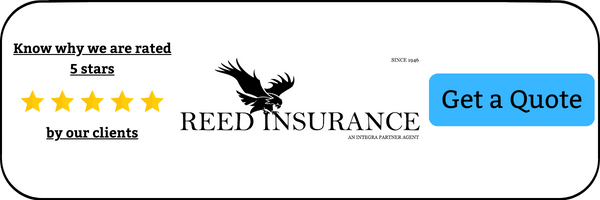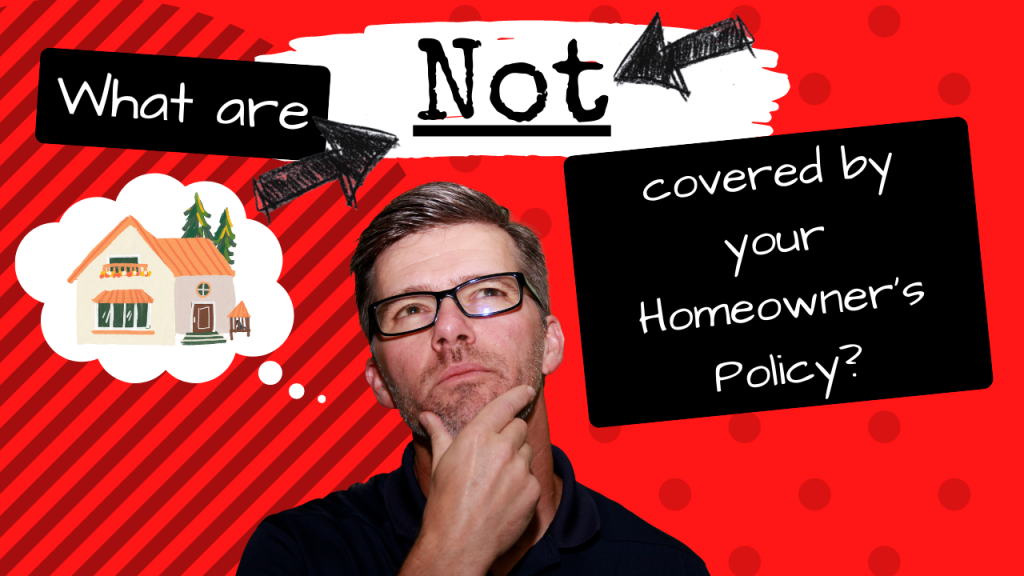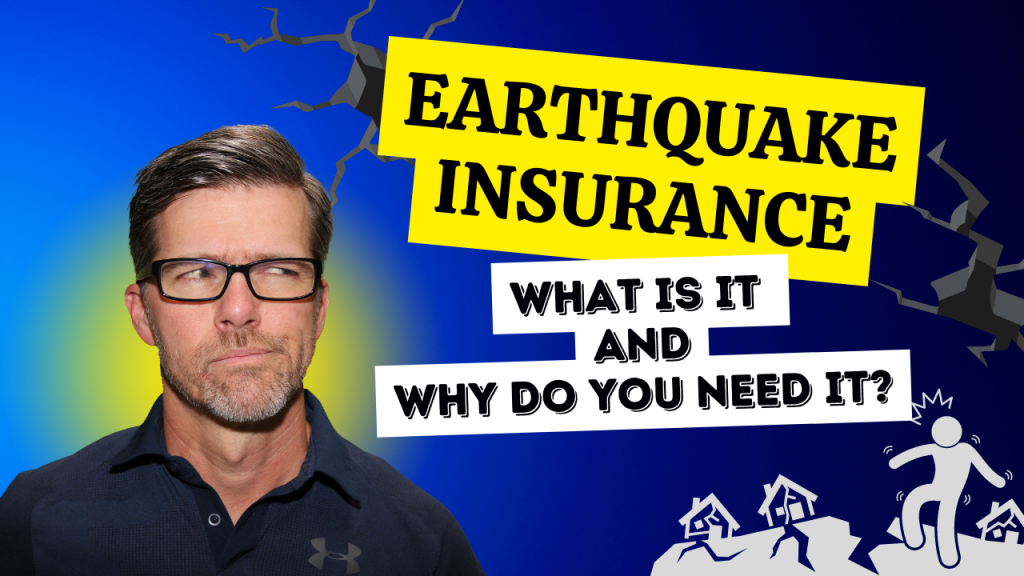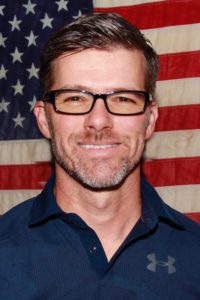Here are 5 common reasons your home insurance claim may be denied!

Today, I’m going to talk to you about the five reasons that your home insurance claim may be denied. Now, I’m hoping to give you some information so that won’t become you. Here’s the deal, either it’s not going to be covered because it never was meant to be covered at all anyway, or you’ve got a gap in your policy that could be addressed. I’m going to tell you those five different reasons and help you to understand whether that’s something that should be covered or not, and could even be covered. I’m going to help you understand that so you don’t become one of those that fall prey to one of these five different things that could falter you. So stay tuned and we’ll talk about those starting… right now!
#1 – Under Your Deductible Amount
Basically, it’s too small of a claim. Every property policy has got a deductible on it, which just means is that’s how much you pay before the insurance pays. Now, typically on a homeowner policy, that deductible is going to be $1,000 and they’ll typically call it an “all perils deductible”. Sometimes they’ll just list it as AOP, and it stands for all other perils. This means if you have a claim and it’s going to cost $1,000 or less, or right there roundabout that number, the policy just isn’t going to cover that. Honestly, you probably shouldn’t file it because if it’s close and you file that small claim, you may lose your claims-free discount and it may cost you more money over the next three years than if you’d just paid for it out of pocket.
So in those cases, you won’t pay that out of pocket. Now, your independent insurance agent, they’re going to ask you some questions about your claim rather than just letting you just turn it in, the direct writers, the 800 number, agents where you just have a cubicle agent. Those guys are just going to listen to what you say, write it down, turn in the claim, and then you’ll find out after it wasn’t covered because it was under my deductible and now I’m paying more for my insurance because I lost my claims-free discount. Hey look, our office doesn’t let that happen to you. We’re an independent insurance agent and we’re going to ask you different questions because we’re watching out for you. We work for you, not for the insurance company. We work for you. We want to make sure that you’re taken care of and we’re going to help you to understand what you need to know so that you can make an informed decision.
Do I need to turn this claim in or not? So it may be underneath that all other perils deductible. Well, you may also have a split deductible. We write in the states of Louisiana, Arkansas, Mississippi, and Texas. Those are coastal states. And in those states, you typically have a separate deductible called wind and hail or maybe a hurricane or named storm because we have hurricanes, named storms, tornadoes, and other things like that in these different states. Again, that’s the states of Texas, Louisiana, Arkansas, and Mississippi. So if you live in those states, you probably have a separate deductible either for a hurricane, named storm, or wind and hail. Just know that you probably have it. If your agent has not brought that up to you, you need to bring it to their attention and ask them why didn’t they bring it up to you and maybe look for another agent.

We always bring that up to all of our clients and most independent agents do. So understand that it may be underneath that other deductible, that wind and hail deductible, which is typically going to be larger. It’s going to be at a percentage or it may be like $5,000 or maybe even more than that for those different perils because that is a high probable claim that’s going to happen. If you’ve kept up with claims in the last several years in these coastal states, we’ve had a lot of hurricane and storm damages, including also ice storm from last year that lasted a solid week and caused a lot of damage in the coastal states all the way up to Arkansas. Large parts of Texas were shut down because, Louisiana, Mississippi, and also even Arkansas were shut down because of that ice storm last year.
#2 – Not Covered On Your Policy
There are all kinds of different policies out there. You need to understand that all policies are not the same. A policy from agency B and company C, and also this other agency over here, D, they’re not all the same. They may have different perils and different things that they cover. There are typically three different types of perils underneath a home policy. Depending on what kind of policy it is, there are going to be different sets of perils that they usually include. And they’re usually basic, broad, and special. Basic is the least, broad is the second, and then special is the best. You want special.
If you’re going to get special, get special. If you’re not sure what you have, take a look at your policy. If you still can’t figure it out, ask your agent or reach out to us. We’ll be glad to help you out with that. So here are some important things that you need to understand. One is you should ask for the best. Number two is underneath certain policies, there are things that just will not be covered that are very important. Underneath a basic policy, here are a couple of things that are not covered that you need to understand that are very real things that can happen to you. One of them is fallen objects. Well, what is a fallen object? That’s a tree. If a tree falls onto your house, that’s not going to be covered underneath a basic policy. That is something that can likely happen. If you don’t have trees within a mile of your house, then Hey, that’s nothing for you to worry about, right?

What Are NOT Covered By Your Homeowner’s Policy?
Your Homeowner’s Policy may not cover everything, but we’re here to help you understand it and ensure you are properly informed about the things that are not covered.
I mean, it’d have to be a tornado to take it and drag it over and throw it onto your house, right? So the likelihood of that is pretty minimal, but just understand fallen objects are not covered underneath the basic. What’s another thing? Water damage. Now I’m not talking about rain. If wind and rain come and blow your roof off and it rains inside your house, that’s covered underneath the basic policy. But if you have a water line let’s say your sink or your commode or to your washing machine that burst, that is not covered at all underneath a basic policy, and that can create a lot of damage. So understand that that is excluded or not covered. Not covered is probably a better word to use. Special is the absolute best. Underneath special, it basically says that everything is covered unless it’s excluded. And we’ll talk about some exclusions in a minute. Under the other two, it’s a list of things that are covered and unless it’s those specific things, it is not covered and they’re not really long lists.
#3 – Excluded Peril
t’s something that is excluded under your policy for one reason or another. One of those common reasons that it’s excluded under your policy is because it is a catastrophe of nature. An example would be war. Look, if we have a war here in the country, there’s probably not going to be any insurance companies left, right? Or the claims would be so large, there would be no way that they could pay for that. Another reason would be it’s a very large, widespread claim such as maybe flood. Typically, a flood is very devastating to a region and it would probably bankrupt an insurance company.
They just wouldn’t have the resources to take care of paying the claims, much less send staff out to adjust all the claims. So typically those sorts of claims fall to the federal government. We have FEMA in place, the flood program, which is a separate policy that is typically through the federal government. There are some private markets that do flood also, but that’s typically in very low flood risk areas. So typically flood insurance is bought through the federal government. What are some other things? Well, an earthquake is one of those also. That’s a catastrophe type of event that typically you have to buy through the federal government. Some areas may be wind. Whenever you get really far down to the coast, like in Louisiana, Mississippi, and Texas, typically you only can buy wind in certain areas far down from the coast through the federal government or through the state government, through a company such as Citizen or the Fair Plans.

Earthquake Insurance: All you need to know!
Earthquake is one of the numerous perils that we have no control over, but what we can do is be prepared and protected. Earthquake Insurance is one of the things that will help you protect your family and your home. In this video, we will explain everything that you need to know!
So you may have a policy on your home that covers everything except for the wind and then you have a separate policy through the state that will cover wind. So that’s the different reasons that it may be excluded. Now, another thing is sewer backup. Sewer backup is typically not covered by your homeowner and underneath the traditional homeowner, it is not covered, but you can add it on. It’s typically not very expensive, but it has lower limits, typically such as 5, 10, 25, 50, or maybe even $100,000, depending on how much your coverage is on your home that you can buy for sewer backup. Another item is going to be things that are easily stolen or high-risk items for stealing such as silver, guns, furs, may be different sorts of fine china or other collectible items, maybe golf clubs or other things that are high dollar items that are easily stolen. Also, jewelry is another thing. They may be limited or even excluded underneath your homeowner policy, but you can buy an add-on or an endorsement to your policy to give you coverage for those items to get them covered correctly.
#4 – Liability Falls Elsewhere
Now liability elsewhere is a couple of different categories. One of them is that someone else is at fault. That’s one thing. So if the insurance company sees that someone else is at fault, they may either pay it and then subrogate or sue them to collect the money back or they may just direct you to first talk to them and let them pay it first. It may be someone else’s homeowner insurance policy or another liability policy or something like that. But that’s one reason that it may be excluded from your policy or not covered by your policy because liability belongs elsewhere.
Well, another reason is there’s just another policy that will cover that. An example is your auto. So let’s say that your auto is damaged. Let’s say that a tree falls on your auto. That’s going to be covered underneath your auto policy. That’s the intent of that policy and your homeowner is to take care of your home. What’s another thing? Well, what about your ATV or your boat? You should have a boat policy or an ATV policy on those or motor homes. So there are those two different categories. One of them is liability belongs somewhere else, it’s someone else’s fault, or there’s a better policy to take care of that for you.
#5 Maintenance & Upkeep vs. Occurrence
Your policy is an insurance policy. It’s not a maintenance policy. So if there’s some sort of maintenance item with your home, your policy is not going to take care of that.
What are those things? Well, your roof is just worn out, your policy’s not going to replace your roof just because it’s worn out. What about if your air-conditioner quits? Just a part in it just fails and it just stops working. Your policy’s not going to cover that. Now there are maintenance policies you can buy that will take care of that for you, but it’s not underneath your homeowner insurance policy. So you need to buy another product for that and typically your insurance agent doesn’t buy it. There are some companies that do, some agents that do also, but typically they don’t. Typically you can find that somewhere, but you may ask your agent, “Hey, do you offer any sort of maintenance policies or can you endorse that to my policy?” So that are the five different things of why your claim may be denied. Some of those things you can fix, some of them you can’t, some of them you just need to be aware of that they’re just maintenance items or you just can’t get them covered regardless.
So I hope that helps you. I hope that helps steer you clear of some potential pitfalls and helps you to know maybe some things that you need to address on your insurance policy. Look, at the end of the day, I want to just make sure that you are aware and that you don’t fall trapped in something that you didn’t have to, that you could have known about if you’d just been educated.
Find out what is different about us today:
Text or call: 318-336-5202
Email reed@reedinsla.com
You can meet our team HERE
You can start a quote HERE
We’ll be glad to take a look at your insurance coverage in any of the states of Louisiana, Texas, Arkansas, and Mississippi.
Thank you,
Beaux Pilgrim, CEO

Beaux Pilgrim
Reed Insurance
